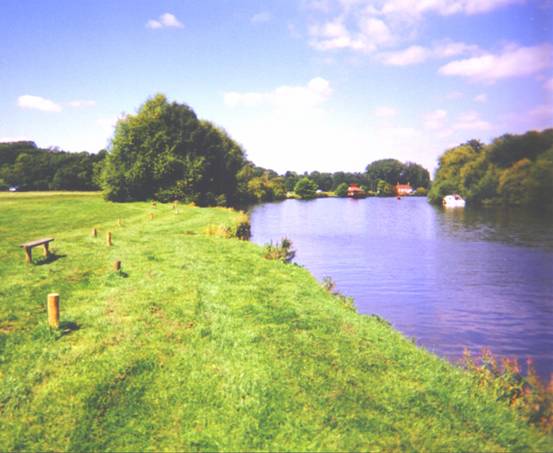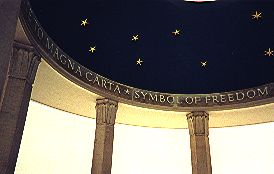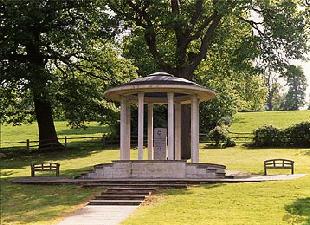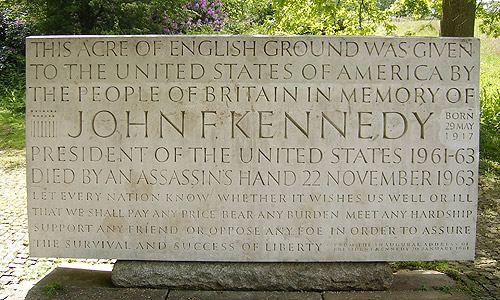That is certainly true, pdf27. It is still necessary to remember what constituted the “common people” in this context. It was comprised of free men - persons unencumbered by the burdens of villein status, and still a small subset of the “common people” as a whole. It is interesting to contemplate William Marshal’s motives in sponsoring this Charter. Marshal was a loyal servant of the Plantagenet dynasty, from Henry II through to his grandson, Henry III. However, he owed his (enormous) fortune principally to his first lord, Henry II. It was during the latter’s reign that something resembling the medieval legal system of England began to emerge. It is likely that Marshal’s sense of propriety was offended by the arbitrary, money-grubbing measures of Richard I and John in relation to the forests.
Another aspect to be borne in mind is the precarious political situation faced by the Plantagenet monarchy at the beginning of Henry III’s reign. John had been the first King of the English to place himself in serious opposition to his own nobility in the interests of establishing control over their often unruly activities and, of course, of raising money. This sort of thing was to become quite common across medieval Europe. John was one of the early starters and, following Henry II’s more moderate approach to such matters and Richard’s much less temperate attacks on baronial rights (mainly in the interests of revenue-raising), John’s crude approach proved too much, producing a humiliating climb-down marked by Magna Carta. The weaknesses of the monarchy was exacerbated by the fact that the new king, Henry III, was a mere babe in arms. It is no weak argument that only the skilled support of Marshal and a small number of other Plantagenet “loyalists” allowed the dynasty to survive at all in a situation in which a dramatically weakened monarchy faced a fractious nobility that considered itself in the ascendancy.
One of the priorities facing Marshal and his ministers was that of promoting counterweights to baronial power in a situation in which direct attacks on baronial rights and privileges would have been problematic and dangerous, even, indeed it such had been possible at all. One possibility was to promote the strength and numbers of the freeholder class. One way of doing this is reflected in the Charter of the Forest, which freed up substantial land from the royal domain for “colonization” by freeholders (persons holding their land in free socage). The barons could scarcely object to this, since it was an attack, not on their privileges, but on the property of the Crown. Related to this was the development of the Royal Courts of Law that had commenced, tentatively, under Henry II and continued (apparently less tentatively) under John. After Magna Carta, the barons were less concerned about the Crown’s arrogation of rights regarding general criminal justice (a messy matter, anyway), but what was important in the current context was the development of the civil courts (what was to become the Court of Common Pleas), which monopolized the right to dispense justice over the landed rights of freeholders in general. The royal government had little time to govern this process through legislation (too busy dealing with revolting barons etc.). However, the judges (generally clerics, often in minor orders in the service of the King - who were literate, somewhat educated, and therefore fit to be “civil servants”) rose to the challenge. While the turmoil that frequently engulfed Henry III’s reign proceeded over their heads, the judges and legal clerks developed a series of legal remedies for freeholders that substantially undermined traditional land “rights” while, at the same time, provided vastly more effective remedies for civil “wrongs” relating to freehold land. By the end of Henry III’s long reign, the civil court system had developed beyond recognition from its state at the start of the reign. At the same time, royal concessions and the (by the barons apparently unforeseen) encroachment of the new system on the rights of barons as freeholders, had resulted in a considerable reinforcement of the freeholder class in general; and freeholders in general could now look to the Crown for the impartial administration of civil justice, separate completely from the often arbitrary fora supplied by baronial and manorial courts.
An interesting problem raised by the Charter of the Forest was that of dealing with situations in which one freeholder, in establishing his farm, performed actions that impinged on the rights of his neighbours. Initially, there was no established means for dealing with such situations. The baronial and manorial courts would have determined such matters on the basis of local custom, with little requirement for consistency. Again, the judges rose to the challenge. An early innovation of the royal judges was the formulation of the Assize of Novel Disseisin, a simple procedure designed to give relief to freeholderss who were disposessed of their lands “unjustly and without judgement” which largely displaced the earlier “Writ of Right” procedure - complicated, rather archaic, and unsuitable for dealing with “new” rights claimed by the expanding common freeholder class. The judges adapted this to deal with situations in which a freeholder was “dispossessed” of his or her lawful enjoyment of their property through acts on the part of their neighbours - such as blocking roads or (very commonly) overflow of millponds and ponds in general. By the 1280s, in Edward I’s reign, a regular system of central courts, supported by their “travelling” branch, the Justices Itinerant, were hearing a substantial range of civil cases, principally of Novel Disseisin, but also “ad Nocumentum” actions dealing with the roads, millponds type issue. “Ad Nocumentum” would translate loosely as “to the Nuisance”, making this Assize an ancestor of the more recent tort of Nuisance.
Very interesting - long time since I have had to opportunity to think (let alone write) about this sort of thing. Great fun. Best regards, JR.





